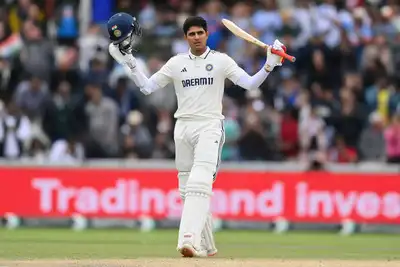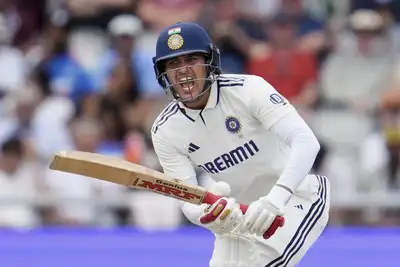Don’t ban the Afghanistan men’s side from playing international cricket but do expect them to do more for the women and girls who don’t have the same rights they do. That’s the opinion of two formerly contracted Afghanistan women’s players living in exile in Australia.
Firooza Amiri and Benafsha Hashimi fled Afghanistan after the Taliban takeover in 2021 and have narrated their story of escape to a new life on ESPNcricinfo’s Powerplay podcast. Both women continue to play club cricket in Australia, with hopes of representing their country someday even though that will not be possible until the Afghanistan Cricket Board (ACB) put up a women’s team. Under Taliban rule, the ACB cannot do that because of the country’s laws, which forbid women from playing sport, studying and working.
Given that Afghanistan are ICC Full Members, and that one of the conditions of that status is to have a women’s side, there has been debate over whether or not to sanction the Afghanistan’s men’s team. Both Australia and England refuse to play bilateral series against them in protest, but continue to play them at ICC events, while the other nine Full Members engage with Afghanistan, sometimes amid growing calls to boycott them. South Africa are the most recent and relevant example, given they were isolated from the 1970s to 1990s for the country’s race-based Apartheid system. While the country’s sports minister, Gayton McKenzie, recently cited gender discrimination as a reason not to play Afghanistan, Cricket South Africa believes punishing the men’s players for a situation beyond their control will not force change. Amiri and Hashimi hold similar views but it is important to know that some of the other players are known to feel differently.
“The Afghanistan men’s team brings a kind of hope. They are role models for us. I don’t want to say I’m not supporting them at all,” Amiri told ESPNcricinfo in May 2024, when we first interviewed her. “But when I cannot play for Afghanistan, what’s more heartbreaking is when you see the men can do something and the women cannot do it – which is absolutely wrong. Everything men can do, women can do as well.”
Australia, where Amiri and Hashimi live, refuse to play Afghanistan in bilateral cricket. This has caused Amiri to wonder whether selective shunning of the men’s team is worthwhile. “If it has an impact on our team, that we can put pressure on the Afghanistan Cricket Board to make a women’s team, then we will be happy, but only if it’s a way we can start playing cricket.”
Though she considered the thought of a ban, Amiri recognises that the Afghanistan men’s team has made rapid progress and its success could be more of a statement than a ban. “They are in a good position at the moment in the world and if they start supporting us, they’ll have a big impact on our team. They can be very, very helpful for us and for all the women. If women can start playing sport, women can start studying as well. It can be a pathway.
“If they start supporting us, it’s going to be a way for all women. If they can hear my voice from here: Afghanistan, national players, please, please be the voice of the girls at the moment. Please do more for us. Start doing something for women. You are the voice of Afghanistan. They are the most famous people at the moment. They can be the voice of millions and millions of girls.”
Despite her plea, Amiri recognised that the men’s players may be risking their own safety if they speak out. “I know that there were always some challenges for them as well. Some of their families are still in Afghanistan. We don’t want you to be in danger.”
“We don’t want to make another problem by stopping them or keep talking about stopping them from playing cricket. Now we have our base, we want to play for the Afghan XI. We want to make a better future for Afghanistan women inside Afghanistan and make a change in cricket.”
“It is one of the most complex pieces I’ve seen,” Jones said. “There’s nothing black and white about this at all… but I do think there’s a question around leadership. People take on positions of leadership to lead, and it’s not to say that you have to make a black and white decision about things but I think you have to stand up and be a voice and lean into some tough situations. And this is a really tough situation.
“I think the frustration has been the lack of conversation around it. And so here’s this amazing group of women who are trying to rebuild their lives and still connect to cricket. And they’ve hardly had a conversation with our leaders right across the world. And that’s the most frustrating thing for me. We might still get to the same point and decisions that we are now regardless of those conversations. But give these women their due. Give them space… that’s probably the one piece that I would say we’ve been really bad at over the last three or four years: it’s that people turn their back on that conversation. And I would hope that if we’d learn anything from this, is that if something like this happens again, whether it’s a different country or a different group of people, if it’s a men’s team somewhere or something like that, that we just don’t turn our back on people and hope that silence will make it go away, because it just doesn’t.”
Episode 2 of the ESPNcricinfo Powerplay podcast will look at where Amiri and Hashimi find themselves now as well as the practicalities and challenges of the Afghan women in exile playing as a team.
Episode 1 one of ESPNcricinfo’s Powerplay Special on Afghanistan will be available on January 22, followed by Episode 2 on January 29.
Firdose Moonda is ESPNcricinfo’s correspondent for South Africa and women’s cricket. Valkerie Baynes is a general editor, women’s cricket, at ESPNcricinfo








